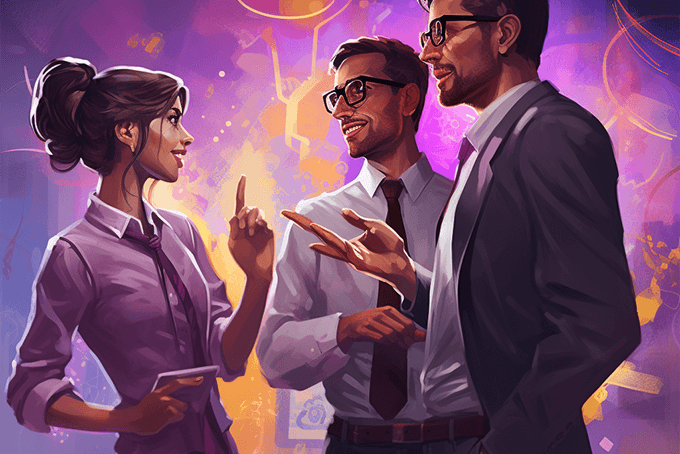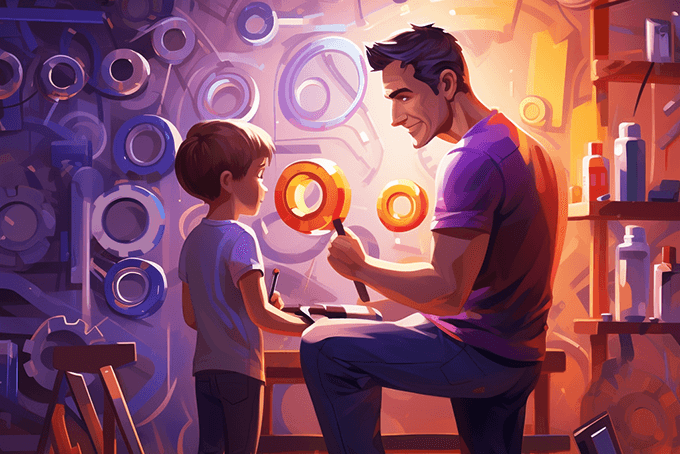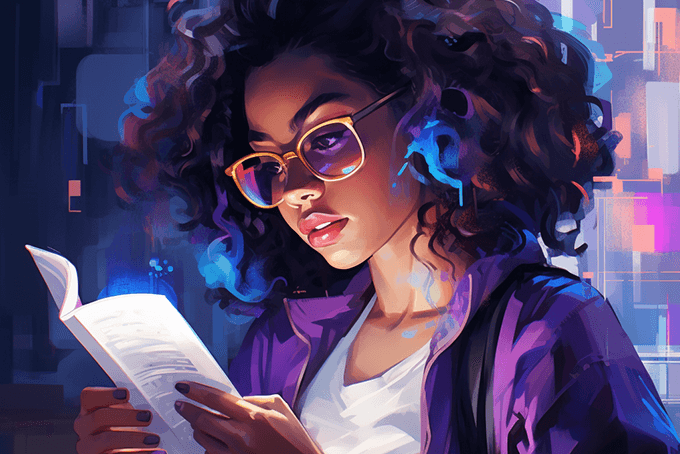Confusion is natural: don’t fight it – use it.
It is quite natural to be confused or feel awkward when dealing with a new concept or skill. And it is quite natural to resent feeling confused. But the bottom line is that confusion and awkwardness are natural. And one of the best ways to make learning more powerful is to make confusion a friend – both for you and your kids.
The hidden obstacle posed by confusion
Most of us have grown up with the notion that there is something wrong with us when we feel confused – as though we are not as intelligent or as competent as we “should” be. But if we think about it for a moment, feeling confused just means that we don’t understand. And the whole point of learning is to come to understand new things that we don’t initially understand. So feeling confused or not competent is simply a natural, normal, appropriate indicator of a need for some learning.
I’ve been through this in many ways. As a kid in school I knew I ought to love math, but it was difficult to “get” it, even though I loved physics. Later in life when I was first introduced to computers, programming felt awkward, even though I ultimately became the education manager of a software company. In both cases, and many more, I “fought” the confusion, even though I ended up prevailing. It just never dawned on me that I was simply approaching learning in the wrong way.
It has been a huge relief over the years to get a handle on what confusion was actually telling me, and then to work out how to handle it to improve my learning.
What, then, is the real problem, the hidden obstacle? It’s NOT confusion itself. It’s the pressure we put on ourselves when we feel confused or awkward. That pressure operates a little bit like stress generally – sometimes even leading us to feel so helpless that something like the survival response kicks in. And then it’s almost as though a learning channel closes.
When confusion (or stress or fear about results) kicks in, we feel a greater sense of urgency and obligation. We strive to make the learning happen more quickly. And at its worst, we literally lose access to some of our own intellectual and creative capacity!
The first way out: Use all of you – body, brain, and mind
The first secret to actually befriending confusion and learning more effectively is to grasp that we learn with the whole body, brain and mind – with every piece and part of us. After all, that’s how kids master their native language or the culture of birth. So lets capitalize on what we could all do naturally as kids, when confusion just meant that we did not know it yet.
Two useful strategies
I introduced the first strategy in my previous post when I suggested that we begin to learn new ideas or skills by using a goal based scenario. This is a simple, meaningful project that naturally organizes the material that we ultimately want to master. I used the example of business executives learning accounting by pretending to be 14 again and operating a lemonade stand.
A second strategy is look for something about the new ideas or new skills that is innately interesting to you. That interest, all by itself, helps you begin to organize ideas and processes in your own mind and so helps to reduce confusion.
In chapter 5 of my e-book on Powerful Learning, I talk about a friend of mine who wanted to learn Italian. Her approach? Because she loves to cook she started to focus on Italian cooking, even playing some music by Bocelli and others at full volume while she cooked! She wanted to speak the language of the food that she loved! And . . . when she used this passion as her focus, a huge amount of the language and vocabulary of fine dining came to her more easily.”
She used her own passion as a natural organizer of a new field of learning. Rather than feeling annoyed by feeling confused, she took some confusion and uncertainty for granted, and enjoyed her slowly emerging competence.
When that happens, the development of the new skill or understanding become less of a battle and more of a dance or a game. And learning is so much easier when the glitches and things that don’t work or make sense are just felt as interesting interludes along the way.



